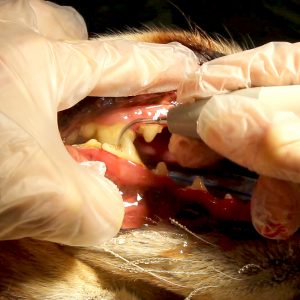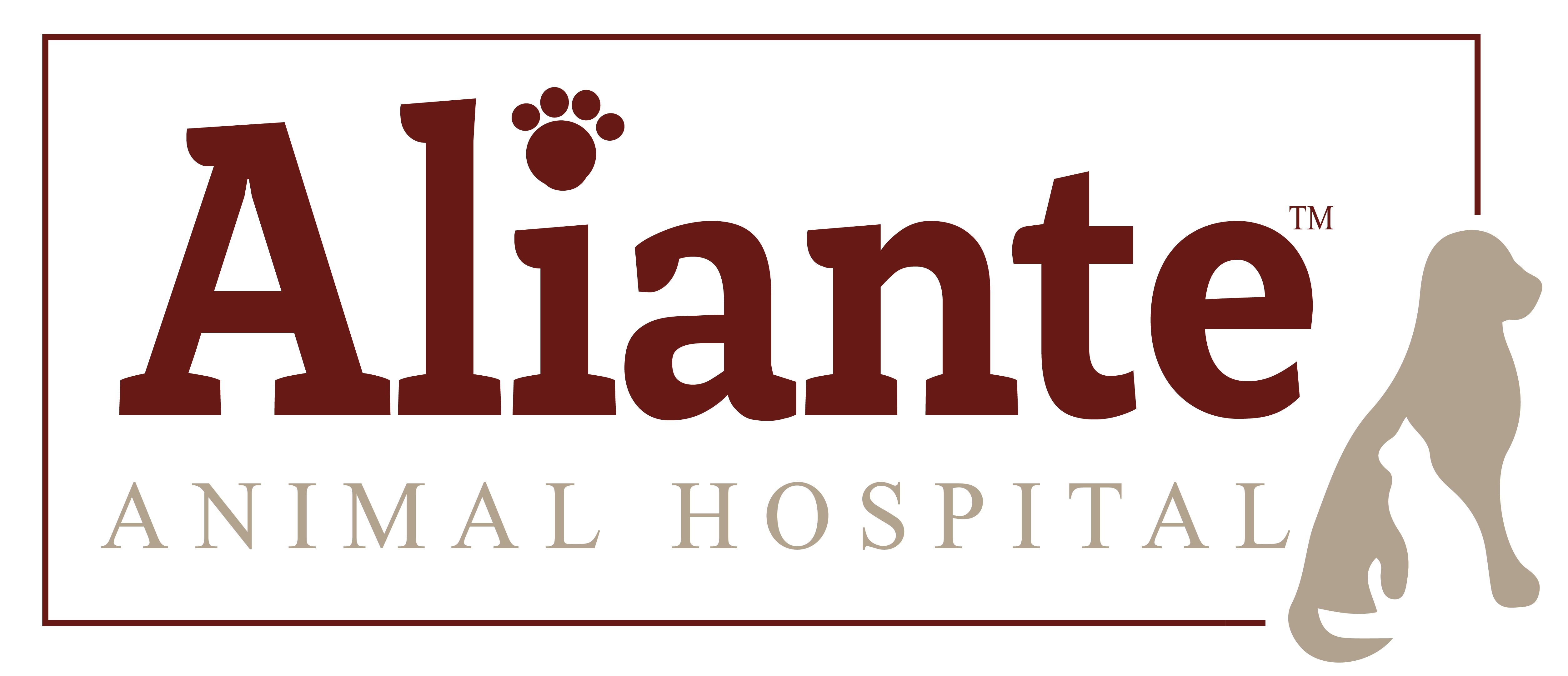 Everyone can understand the importance of dental care for their pets, because the risk of gingivitis and periodontal disease is the same for animals as it is for people. There is no reason to believe that animals do not feel the same pain of sore gums and a toothache that we feel. So, the main reason to care for your pet’s teeth is to prevent pain.
Everyone can understand the importance of dental care for their pets, because the risk of gingivitis and periodontal disease is the same for animals as it is for people. There is no reason to believe that animals do not feel the same pain of sore gums and a toothache that we feel. So, the main reason to care for your pet’s teeth is to prevent pain.
If you never brushed your teeth, your mouth would be sore and you would have trouble eating. You might feel tired all the time because the infection in your mouth would spread throughout your body. The exact same thing happens in your pet’s mouth. The mouth is the door to the rest of the body. It has a very good immune system to protect it against the constant barrage of bacteria and toxins it deals with every minute, but it needs some help. We must keep it clean of the plaque that is constantly forming on the teeth.
Plaque is a clear, thick substance consisting of saliva, bacteria, and food particles. In fact, plaque is 80% bacteria and forms within 6-8 hours after brushing. It sticks to the teeth and collects in the pockets around the teeth. If not removed, an infection will result. This infection will eventually overwhelm the body’s immune system.
Signs of gingivitis and periodontal disease:
- Bad Breath
- Drooling
- Difficulty chewing or eating
- Vomiting
- Gums swollen or red, may bleed
- Brownish-yellow calculus (tartar) on teeth
- Receded gums
- Loose or missing teeth
Your veterinarian is your pet’s dentist, as well as medical doctor. Ask if you have any questions about the health of your pet’s mouth. We may recommend that the teeth be cleaned and polished. Scaling removes the plaque and tartar buildup. Polishing smoothes the surface of teeth to discourage plaque buildup. Modern veterinary dentistry allows us to safely anesthetize most pets to clean the teeth. Depending on your ability to brush the teeth, your pet may need its teeth professionally cleaned every 6 months to one year.

